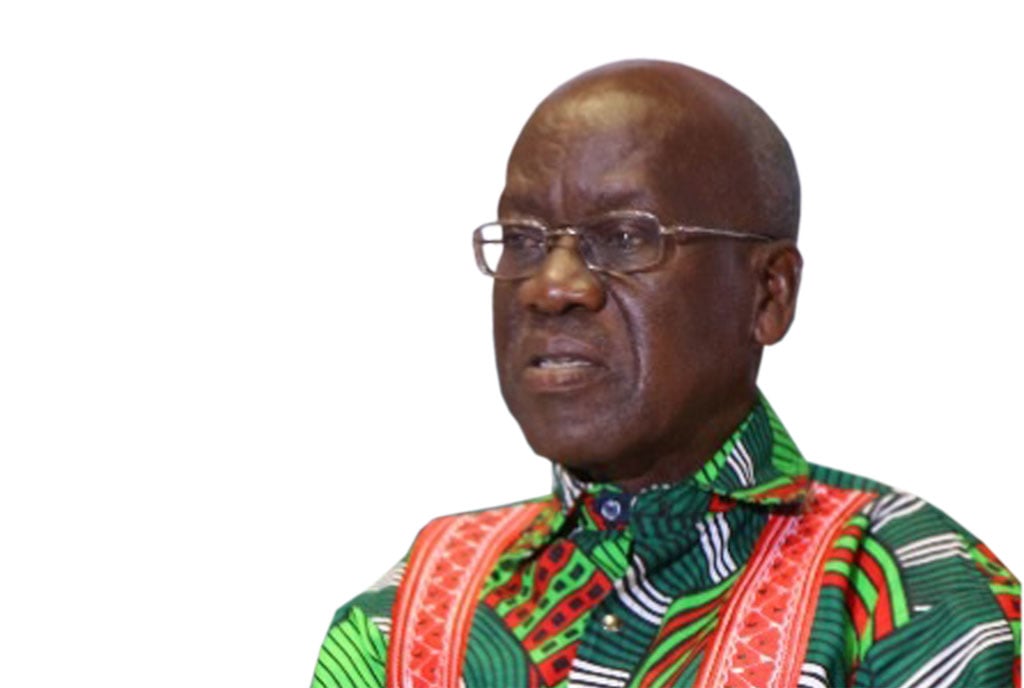An excellent way to peace: A portrait of St Francis

Author: Prof Timothy Wangusa is a poet and novelist. PHOTO/FILE
What you need to know:
- In a nutshell, the article portrayed the perpetual international preparedness for war, manufacturing of war, and making lucrative business out of creating various types of weaponry, including nuclear arsenal with capacity for massive destruction and disruption of life on earth.
My last article in this esteemed paper made reference, in its closing one-sentence paragraph, to “a more excellent way” to universal peace. In a nutshell, the article portrayed the perpetual international preparedness for war, manufacturing of war, and making lucrative business out of creating various types of weaponry, including nuclear arsenal with capacity for massive destruction and disruption of life on earth.
Helping myself to the above borrowed phrase, I made the claim that I happen to know that there is “a more excellent way”.
The borrowed phrase is attributed to the mystical individual who has come to be venerated for close to 1,000 years now as Saint Francis of Assisi (c. 1182-1226 AD).
We learn that at the age of 24 in 1206 AD, the young man (originally Giovanni di Pietro di Bernardone) was heading southwards to join Walter Brienne’s armies fighting on behalf of the Pope in the Apulian Expedition in Southern Italy.
Ah, ha ha ha – an army was fighting on behalf of the reigning Pope! The Pope was acting out Christ’s declaration that there will always be wars, and rumours of war, and speculations of war on earth; and that he, Christ, had not come to bring peace on earth but rather a sword, causing enmity between parent and child, brother and brother!
While pursuing the Pope’s agenda of the benefits and glory of war, Francis heard, in “a suspended moment of a mysterious visitation”, thus continues the story, a voice asking him, “Which would do better for you, the Lord or the servant?”
“The Lord,” replied Francis.
Then the voice directed, “Go back and I will tell you what to do. I will show you a more excellent way”.
Francis’s generation in world history occurred towards the end of what scholars call the Middle Ages. Behind him stretched centuries of the Dark Ages that superseded the fall of the Roman Empire; and ahead of him in the medium future still lay the renaissance and the reformation, and in the distant future still lay the 20th Century aberrations of nuclear technology and the crazy achievements of the darker side of digital technology.
And so, obedient to the supernatural directive that intercepted his military adventure, Francis returned home. He turned his back on gaiety, affluence, and the glory of war – and chose the “more excellent way” of poverty, humility and love!
He exchanged the colourful life of broad and wide countryside glory for the severe life of a boxed-in monastic recluse.
He chose the life of a Catholic friar, deacon, and mystic. In due course his Franciscan Order was born, an order of self-effacement and peace.
Following his death in 1226, he was canonised two years later by Pope Gregory IX in Assisi, which was one of the secular Papal States in Italy, and he subsequently became the patron of animals and ecology.
The legend has come down of Francis talking with the animals of the field, and the birds of the air resting on his shoulders. He prayed in the fields for so long that he grew to harmonise with nature: till the animals and the birds happily mistook him for one of themselves!
Francis hated suffering in any form, and believed that where there was pain there would be no peace. He knew and believed with St Paul that the entire universe has been groaning since man’s first experience of disorder and pain, and that nature would never be restored to perfect order till man had achieved perfect peace. The prayer of his life-time was, therefore, that he might be made “an instrument of peace”.
He wanted to be an instrument, not a weapon. An instrument is a means by which something is performed or a process conducted; while a weapon is specifically a tool with which attack is made on an enemy.
St Francis was and still is a supreme example of the former: an instrument of peace.
Prof Timothy Wangusa is a poet and novelist.


